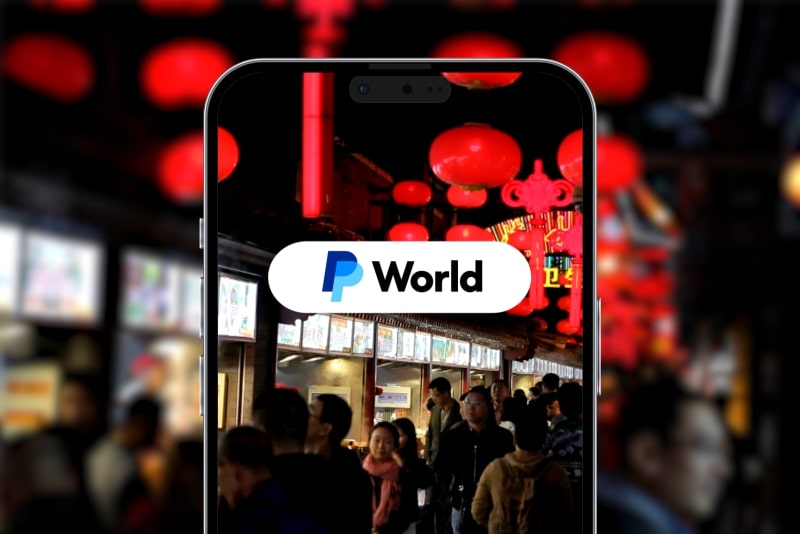PayPal World Unleashed: A Game-Changing Move to Connect 2 Billion Wallet Users Globally

Key Takeaways:
- PayPal World launches this fall, linking Venmo, Mercado Pago, UPI, Tenpay, and more into one global payments platform.
- Users can pay across borders using their domestic wallets and send money between PayPal and Venmo internationally.
- Nearly 2 billion users will gain access to a seamless, cross-border payment ecosystem with no extra integration required for businesses.
A seismic shift is coming to the crypto payments landscape. PayPal has officially announced PayPal World, a unified global platform that connects the world’s leading digital wallets and payment systems. The initiative will go live this fall, with support from massive players such as Mercado Pago, NPCI’s UPI, Tenpay Global, PayPal, and Venmo. The goal? Make borderless commerce and crypto adoption easier than ever.
Read More: PayPal Expands PYUSD Stablecoin to Stellar Blockchain, Targeting Global Payments and Remittances

A Borderless Payments Network Is Coming
The crypto ecosystem has long promised a globalized, decentralized future but payment interoperability has lagged behind. PayPal World could change that.
One Platform, Multiple Giants
With nearly 2 billion users combined, the launch partners already cover vast markets across the Americas, Asia, and beyond. Consumers in India, China, Latin America, and the U.S. will be able to pay international merchants using domestic wallets like UPI or Weixin Pay (via Tenpay), without needing a credit card or new integration.
This is not just a fintech upgrade; it’s a leap toward mainstream crypto and stablecoin adoption in daily transactions.
While traditional crypto wallets have struggled with regulation and cross-border reach, PayPal World leapfrogs many of those hurdles by building on the existing infrastructure of regulated fintech giants.
Crypto Relevance: Is This the Infrastructure for Mainstream Adoption?
While PayPal World does not directly launch a new token or blockchain network, its integration with AI agents, dynamic payment buttons, and planned stablecoin compatibility puts it on the path to becoming a backbone for future crypto-driven commerce.
Stablecoin Integration on the Horizon
PayPal’s 2023 launch of its own stablecoin, PYUSD, makes this announcement even more intriguing. While not explicitly mentioned in the launch, PayPal World is architected to support stablecoins as part of its future roadmap. This means seamless cross-border payments using PYUSD or other digital currencies could soon become reality without users needing to know anything about crypto keys or chains.
If successful, PayPal World could provide the real-world utility layer that crypto projects like Stellar, Ripple, and even Ethereum have aimed to build for years.
Read More: SEC Closes Investigation Into PayPal’s PYUSD as Stablecoin Gains Momentum in Crypto Market
Built for AI and Next-Gen Commerce
What sets PayPal World apart from existing payment rails is its technology-agnostic, AI-ready architecture. The platform will allow users to shop and pay through conversations with AI agents whether that’s an assistant helping you buy sneakers in Tokyo or ordering coffee in Shanghai with your PayPal wallet.
The idea is clear: to prepare for a world where agentic shopping, conversational commerce, and blockchain-based assets converge.
Use Cases That Could Reshape Payments
Let’s explore a few illustrative scenarios that show how transformative this system could be:
Real-World Scenarios Powered by PayPal World
- An Indian shopper buys from a U.S. store: A UPI user in Mumbai can check out using their UPI wallet when shopping on a U.S. e-commerce platform that supports PayPal. No international card, no currency conversion hassle.
- A Venmo user sends money globally: A U.S. Venmo user can send money to a PayPal user in Germany, instantly and with no third-party apps or fees.
- A traveler in China pays with PayPal: A U.S. tourist visiting Beijing can pay at a café that accepts Weixin Pay just by scanning a QR code in their PayPal app.
All these scenarios use existing domestic wallets and require no new integration from merchants.

Businesses Get Global Reach with Zero Extra Integration
For merchants, PayPal World is a rare win-win. Without changing a single line of code or investing in new APIs, businesses integrated with PayPal will automatically accept multiple wallets across multiple countries, including Tenpay (China), UPI (India), and Mercado Pago (Latin America).
With no additional tech costs, merchants unlock:
- A direct gateway to nearly 2 billion consumers,
- Seamless integration with new wallets as they join the platform,
- Access to younger, mobile-first Venmo users globally.
In crypto terms, this mimics the benefits of smart contract composability but for fiat and digital payments.
Why This Matters for Crypto Markets
Although PayPal World doesn’t explicitly launch on a blockchain, its design shares much with decentralized financial infrastructure: interoperability, user sovereignty (use your own wallet), and automated cross-border functionality. With future support for stablecoins and AI shopping agents, this could become the de facto interface for everyday crypto use cases.
If done well, PayPal World might become a hub for hybrid payments, the place where fiat, stablecoins and maybe tokenized assets freely traverse borders.
Already, the crypto community is wondering if there are plans for PayPal World to integrate an Ethereum Layer 2 solution among future updates, or also if they are going to implement a PYUSD reward, and use PayPal World network as a token based loyalty program.
The post PayPal World Unleashed: A Game-Changing Move to Connect 2 Billion Wallet Users Globally appeared first on CryptoNinjas.
